![[safe]](safe.gif)

Great Expectations
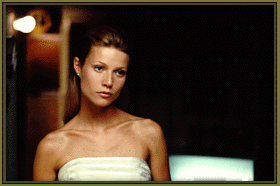
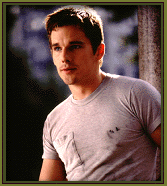
Ethan Hawke, Gwyneth Paltrow, Hank Azaria, Anne Bancroft, Robert De Niro
Directed by Alfonso Cuaron
![[safe]](safe.gif)



Ever since I saw the trailer for this movie more than six months ago, I waited with bated breath for its arrival. With its striking visuals and the haunting sound of Mono's "Life in Mono" throbbing insistently as one beautiful image after another flashed onscreen, the trailer set a standard for the film which it was destined to struggle to live up to.
 Happily enough, the film, though nowhere near as good as the trailer suggested, is nonetheless a fine piece of film-making, buoyed by a few interesting performances, but mostly helped by its wonderful visuals. Director Alfonso Cuaron came to Hollywood based on his work on an episode of the TV series "Fallen Angels", and his last film, the largely overlooked "The Little Princess", remains a masterfully realised vision of Victorian England and enchantment through a child's eyes. In that film, as this one, he worked with Emmanuel Lubezki, a cinematographer who seems to have monopolised the use of artificial light to create stunning, ethereal images for the screen. His work in "A Walk in the Clouds" was the best thing in the film, and here, he works closely with director Cuaron to present a film that is visually intoxicating to behold.
Happily enough, the film, though nowhere near as good as the trailer suggested, is nonetheless a fine piece of film-making, buoyed by a few interesting performances, but mostly helped by its wonderful visuals. Director Alfonso Cuaron came to Hollywood based on his work on an episode of the TV series "Fallen Angels", and his last film, the largely overlooked "The Little Princess", remains a masterfully realised vision of Victorian England and enchantment through a child's eyes. In that film, as this one, he worked with Emmanuel Lubezki, a cinematographer who seems to have monopolised the use of artificial light to create stunning, ethereal images for the screen. His work in "A Walk in the Clouds" was the best thing in the film, and here, he works closely with director Cuaron to present a film that is visually intoxicating to behold.
 Beginning with the barest remnants of Dickens' novel, Mitch Glazer has updated the story of Pip (admittedly a silly name, so now updated to "Finn" at the behest of Hawke) and his struggle to become a gentleman/artist, worthy of the love of snobbish, cold Estella, the niece of the mad Ms Havisham (now named "Ms Dinsmoore" and inhabited by the excellent Bancroft), whilst his fate seems inextricably entwined with a criminal he once saved. Moving the action to Florida, and later to New York, the film has a relentlessly contemporary feel to it - a fact that the eclectically assembled soundtrack comprising of Verve, Lauren Christy, Tori Amos and Duncan Sheik amongst others never fails to remind us.
Beginning with the barest remnants of Dickens' novel, Mitch Glazer has updated the story of Pip (admittedly a silly name, so now updated to "Finn" at the behest of Hawke) and his struggle to become a gentleman/artist, worthy of the love of snobbish, cold Estella, the niece of the mad Ms Havisham (now named "Ms Dinsmoore" and inhabited by the excellent Bancroft), whilst his fate seems inextricably entwined with a criminal he once saved. Moving the action to Florida, and later to New York, the film has a relentlessly contemporary feel to it - a fact that the eclectically assembled soundtrack comprising of Verve, Lauren Christy, Tori Amos and Duncan Sheik amongst others never fails to remind us.
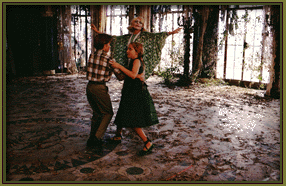
Beginning with a sequence which seems at odds with the rest of the film, a young Finn is shown floating out into the sea to sketch the fish in the ocean, whereupon he is seized and threatened by Lustig (Robert De Niro), a convict escaped from a nearby penitentiary. After this weak beginning, the film cruises along nicely, introducing us to Finn's sister (Kim Dickens) and her boyfriend Joe, who eventually raises the young boy after she mysteriously disappears one night. Finn's first meeting with Estella occurs at the estate of her flamboyantly crazy aunt Nora Dinsmoore, a woman driven to madness after being left at the altar two decades earlier, and who is intent on passing on her hatred of men to her niece. Through a marvellous pastiche of images, Finn and Estella grow older amidst the decaying fortress of Dinsmoore's estate, under her intent watchful eye, playing out a tragedy she has written for them. When Estella leaves unexpectedly, Finn forsakes his art and throws his lot in with Joe as a fisherman. However, art will not be denied, and fate deals Finn a surprise in the form of a mysterious benafactor who lures him to New York and sets him up for a life of luxury and a one-man art show amongst the glitterati. Into his life enters Estella again, now engaged to be married to a vacillating man (Hank Azaria), but still intent on securing Finn's affections. Their tortured affair reaches an apex on the night his show opens, and Finn's past, present and future collide in a way which surpasses his greatest expectations….
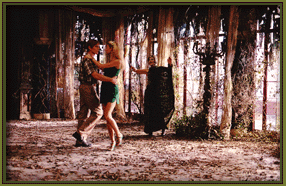
Glazer's script, modelled closely as a hip update of a classic work, is the film's weakest point. Many of the lines are stilted cliches (he even drags out that insufferable song title of that Bryan Adams hit, "Everything I do blah blah blah"), although there are one or two genuinely moving moments. Given the material, it is easy to understand why Cuaron has concentrated instead on the visuals of the film, and he succeeds to a large extent in making up for the material's shortcomings. Green permeates the screen in almost every scene, and makes for a striking counterpoint to the ongoings, giving everything a sense of seamless continuity and flow. Lubezki's work is superlative as ever, and is the second best reason to catch the film.
The first is Francisco Clementi's artwork, on display as Finn's art, throughout the film. Stunning, provocative and sweet all at once, Clementi's work is the heart and soul of the film as he humanises Finn (much needed since Hawke again turns in another of his drop-dead earnest and sincere, but not very good, performances), giving Cuaron and Hawke a visual shorthand to the character's feelings, desires and motivations. His portraits of the cast members will linger on in your mind long after the forgettable lines have faded from memory.
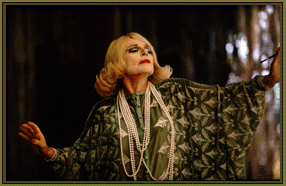
Of the big name cast assembled, Kim Dickens is wasted in a role that is almost an after-thought. After her strong performance in Jake Kasdan's "Zero Effect", it is a pity that she was not given more material to work with here. Hank Azaria, likewise, is called upon to do no more than look somewhat anxious, and he barely registers a screen presence - a shock, since Azaria is normally a scene stealer. De Niro appears in what amounts to a cameo, playing a talking plot device rather than a character. Only Bancroft overcomes the script's character limitations and presents a garish, over the top portrait of a woman ruined by love and hatred. Her campy take on Dinsmoore comes off successfully, mostly because Bancroft is just so damn stylish and cool, and she gets many of the film's best lines (which actually amount to slim pickings at best). The two leads swan about each other glamourously. Hawke, as noted earlier, is still that earnest Todd in "Dead Poets Society", his portrait of an artist as a young man just another one of his sincere but flat performances. Easy on the eyes but not offering much else, he yields the film to Paltrow, whose icy cold beauty is fully exploited by Cuaron to maximum effect. Her performance is equal parts dress-up (her costumes are a joy to behold) and detachment, and the reason her character registers so strongly in the audiences' minds is due more to the way it was written (the typical mystery woman whom the hero cannot fathom) than due to any substantial efforts on her part, although it is fair to say that she tries hard and succeeds to a certain extent at displaying the twin qualities of fire and ice that course through Estella's veins.
Ultimately, "Great Expectations" will elicit a large number of bad pun jokes based on its titles, but it is by no means a bad film. Somehow amounting to more than the sum of its parts, Cuaron's film is passionate in execution and design, and these factors, along with the efforts of the cast and the director, make it a romantic tale that's full of good moments, just short of great.